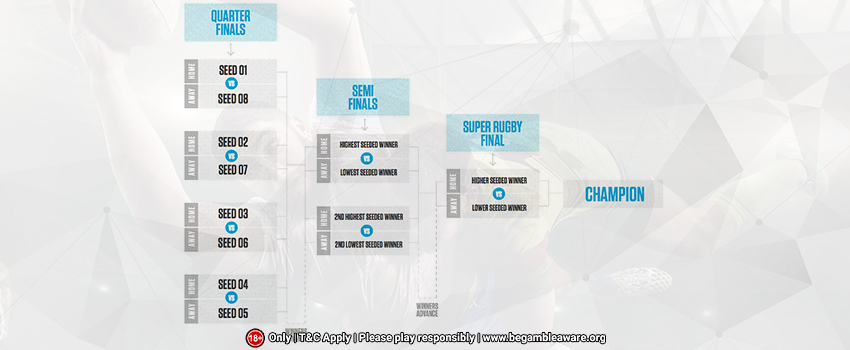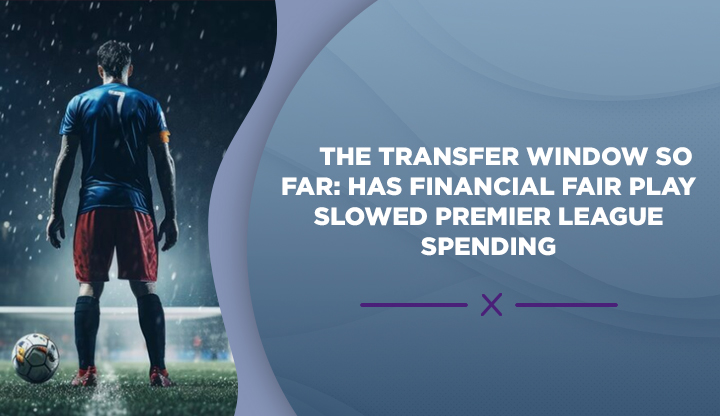History And Winners Of The Rugby Championship

Previously known as the Tri-Nations Cup, The Rugby Championship (TRC) is one of the most popular international rugby union competitions in world rugby. Being a pre-eminent rugby event, The Rugby Championship attracts millions of viewers and sports bettors alike.
In this article, we provide an insight into the fascinating history of this popular rugby competition. Also, we offer a list of all The Rugby Championship winners to help you make more informed decisions when enjoying rugby betting online. Keep reading!
About The Rugby Championship
The Rugby Championship is one of the leading rugby union competitions in international rugby. It is contested by Australia, Argentina, New Zealand and South Africa – the four highest-ranked teams in the southern hemisphere.
Earlier, the competition was known as the Tri Nations, as only three countries took part in the league. But with the addition of Argentina in the 2012 season, the competition got renamed The Rugby Championship. During the 2020 season, the name Tri Nations was temporarily revived, as South Africa withdrew from the competition due to the COVID-19 pandemic.
When it comes to administering the operations of The Rugby Championship, they are overseen by SANZAAR. SANZAAR is an international rugby consortium that consists of four national governing bodies. The governing bodies in the consortium include Rugby Australia, South Africa Rugby Union, Argentine Rugby Union, and New Zealand Rugby.
The inaugural edition of the competition with the new name – The Rugby Championship – was in 2012, and it was won by New Zealand. To date, New Zealand has clinched a whopping 8 The Rugby Championship titles, with Australia and South Africa winning one title each.
The Rugby Championship history
While rugby teams like New Zealand and Australia have been participating in rugby competitions since the 1930s, it wasn’t until 1996 that the Tri Nations league was launched. The inaugural edition of the competition saw New Zealand clinching the Tri Nations title by defeating Australia in the final game.
In the 1997 edition of the competition, New Zealand maintained their dominance and again went undefeated. Here, Australia and South Africa registered just a single win and experienced the same fate as the 1996 season.
Things finally turned around for South Africa when they finally won their first Tri Nations title in 1998. And it was in the year 2000 that Australia won the Tri Nations Championship for the first time. Australia’s successful reign in the championship ended in 2002 when New Zealand won the competition again.
Starting the 2007 season, each Tri Nations team played just two games against either team. This major change in the Tri Nations format was made as the competition clashed with the Rugby World Cup. But despite that change, New Zealand again lifted the Tri Nations trophy by defeating Australia in the final match.
In 2012, the Tri Nations consortium decided to include Argentina in the championship, owing to its stellar performances in the mid-2000s. And with the expansion of the championship to four rugby teams, the name of the tournament was changed to The Rugby Championship.
The Rugby Championship format

As with several other Rugby tournaments, The Rugby Championship is played on a home-and-away basis. Between 1996 and 2005, the three teams – New Zealand, Australia, and South Africa – played each other twice. Since the 2006 season, each team has played the other three times, with the only exception being the 2007 and the 2011 season when the series was reverted to a double round-robin. Also, to provide longer preparation times for the teams, each side played the other only once each during the 2015 and the 2019 season.
Every year, The Rugby Championship begins in July and ends early in September. As many players from the SANZAAR countries participate in both the Rugby Championship and the Super Rugby Championship, the competition usually starts after the completion of the latter.
In The Rugby Championship, a points system is used to determine the winner. Depending on whether the team receives an attacking bonus point, the winning team in the Rugby Championship collects either 4 or 5 points.
The side that draws in the tournament can gain either 2 or 3 points, based on whether or not they receive an attacking bonus point. A losing team, as you’d guess, can collect between 0 and 2 points. At the conclusion of the championship, the team that is able to collect the most points is deemed as the winner.
If it happens that both the teams have the same number of points for any position, then the total number of wins in the competition is used as the first tiebreaker. If that can’t decide the winner, then the competition relies on other tiebreakers like the number of wins against the other team, the overall points differential, and the most tries scored in a competition.
Given the exciting nature of its format, it’s no surprise that the tournament attracts some of the best betting odds and sees lots of online betting action.
Tri Nations past winners
| Year | Winner |
| 1996 | New Zealand |
| 1997 | New Zealand |
| 1998 | South Africa |
| 1999 | New Zealand |
| 2000 | Australia |
| 2001 | Australia |
| 2002 | New Zealand |
| 2003 | New Zealand |
| 2004 | South Africa |
| 2005 | New Zealand |
| 2006 | New Zealand |
| 2007 | New Zealand |
| 2008 | New Zealand |
| 2009 | South Africa |
| 2010 | New Zealand |
| 2011 | Australia |
The Rugby Championship past winners
| Year | Winner |
| 2012 | New Zealand |
| 2013 | New Zealand |
| 2014 | New Zealand |
| 2015 | Australia |
| 2016 | New Zealand |
| 2017 | New Zealand |
| 2018 | New Zealand |
| 2019 | South Africa |
| 2020 | New Zealand |
| 2021 | New Zealand |
Most wins in The Rugby Championship
| 6 | New Zealand (2010, 2012, 2013) |
| 5 | New Zealand (2006) |
| 5 | South Africa (2009) |
| 4 | New Zealand (1996, 1997, 2003, 2008, 2014) |
| 4 | South Africa (1998; 2013, 2014) |
| 3 | Australia (2000, 2008, 2011, 2012, 2015) |
| 3 | New Zealand (2005, 2002, 1999, 2007, 2009) |
| 3 | South Africa (2005) |
Best match-winning streak in The Rugby Championship
| 12 | New Zealand (2012-2013) |
| 8 | New Zealand (1996-1997; 2005-2006; 2009-2010; 2012) |
| 7 | New Zealand (2002-2004) |
| 5 | South Africa (1997-1998; 2008-2009) |
| 5 | Australia (1999-2000) |
RECENT

Champions League
Constitution Hill’s Champion Hurdle Prep Disrupted after Unsatisfactory Scope
Jan 23rd, 2024 By Ben Joseph
Premier League
Iroko’s Miracle Comeback – Cheltenham winner back in training after injury surprise
Jan 23rd, 2024 By Ben Joseph
Premier League
The Transfer Window So Far: Has Financial Fair Play Slowed Premier League Spending?
Jan 23rd, 2024 By John McMullen
Football, Premier League
Game Week 13: High-Flying Bees Host Red Hot Gunners
Nov 20th, 2023 By John McMullen
Football, Premier League
Game Week 13: Battle For Bragging Rights at St. James’ Park
Nov 20th, 2023 By Ben Joseph
Football, Premier League
Game Week 13: Title Showdown at Stamford Bridge
Nov 20th, 2023 By John McMullen
Football, Premier League
Game Week 12: Buoyant Villa Host Surging Fulham in West London Derby
Nov 10th, 2023 By Ben Joseph
Football, Premier League
Game Week 12: Can Forest Chop Down the Hammers?
Nov 10th, 2023 By John McMullen
Football, Premier League
Game Week 12: Rampant Reds Host High-Flying Bees
Nov 10th, 2023 By Ben Joseph
Football, Premier League
Game Week 12: Can Plucky Blades Clip High-Flying Seagulls’ Wings?
Nov 10th, 2023 By Ben Joseph
Football, Premier League
Game Week 12: Table Toppers Tussle as City Host Chelsea
Nov 10th, 2023 By Ben Joseph





